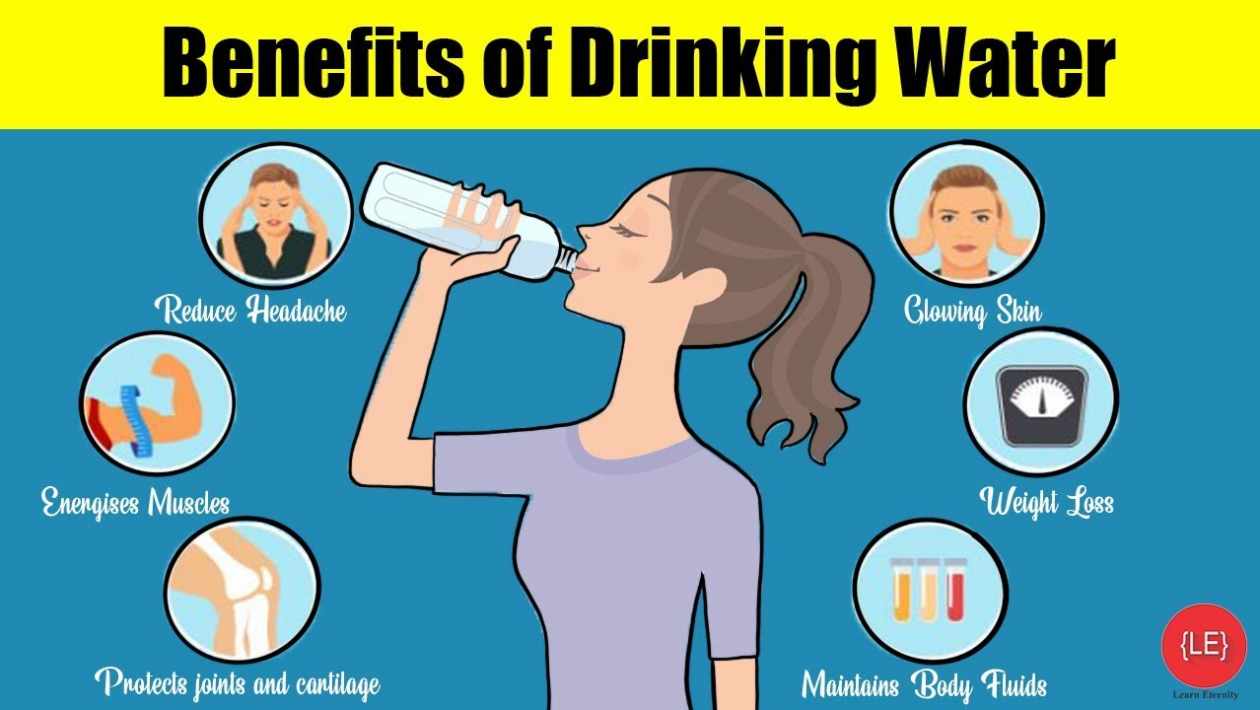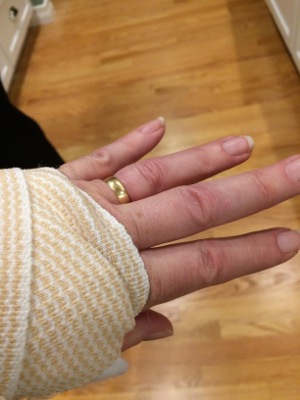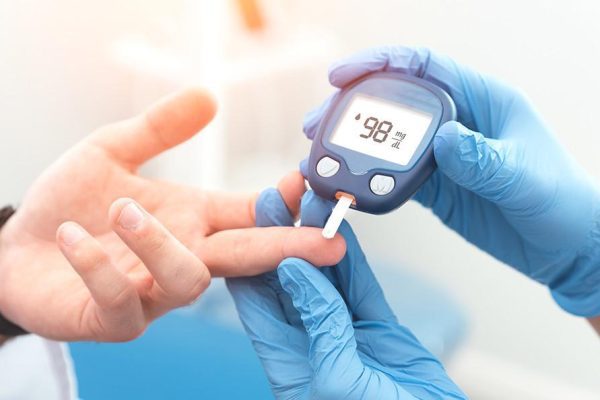Drinking water is an essential part of our daily life. This natural element keeps us healthy by maintaining our body needs. Usually, our body consumes 60% of water to fulfill the requirements of daily nutrition. The benefits of drinking water are innumerable. Today we will talk about this topic.
https://www.youtube.com/watch?v=LHujMS4z4mw
The symbol of water is H2O, which works to keep us hydrated. Usually, a human body can not stay without drinking water for three days. It is essential to drink enough water every day. If you are an adult, you should drink at least three litter or eight glasses of water per day. Our body needs fluids and minerals to operate our digestive system.
Also, we need to drink water for our body organs. Such as kidney, liver, and blood cells. The most important thing is, if you want to live a healthy life, you have to keep hydrate yourself continuously. But many people don’t take these issues seriously. They even don’t know the ultimate risk of not drinking plenty of water. Also, there are many harmful effects of dehydration.
But one thing you should note that drinking excess water is also harmful to our health. So, it’s crucial to know how much water we have to drink each day. From this article, you get many valuable points about drinking water.
Let’s know more about the benefits of drinking water.
Benefits of drinking water
There are so many benefits to drinking water. Because if you want to stay healthy, there is no alternative to drinking enough water every day. In today’s article, we will mention some of the benefits:
Water can boost our blood circulation
Organs and cells in our body usually collect oxygen from the blood. And blood supplies oxygen to our brain and muscles from water. As a result, much of the nutrients our bodies need come from water. Through the oxygen in the water, the blood helps our body to get the energy it needs. Since our blood contains about 50 percent water, it is essential to get enough water every day. This is because our body receives oxygen from the blood and expels unnecessary carbon dioxide from the body through respiration. Blood juice is 55% of the blood in our body. Besides, 90 percent of plasma is water.
So water plays a vital role in increasing the blood circulation in the body.
Water helps maintain saliva level
Saliva, composed of 90% water, facilitates the absorption, transport, and digestion of ingested food. By transforming food through chewing, saliva helps absorb nutrients for digestion. This is why it is essential to keep a sufficient saliva volume in the mouth to allow it to perform this function.
Water helps regulate body temperature
The average body temperature of the body is between 36.1 ° C and 37.8 ° C. Beyond that. The body sets up a thermal regulation system through sweat. Fever, exercise, exposure to heat, or the sun naturally raise the body’s temperature, and sweating helps cool off and bring the temperature to a standard threshold. But to compensate for the water losses linked to evaporation, it is necessary to hydrate regularly.
Water allows the elimination of waste through urine
Urine contains 95% water. His function? The kidneys allow eliminating metabolic and toxic waste from the body (drug residues, unabsorbed food while retaining the mineral salts essential to our health.
Also, to ensure our renal system’s proper functioning, it is essential to drink enough to renew the urine contained in our body regularly.
Water carries nutrients to the brain
Did you know that 85% of the brain bathes in water to ensure its nutrient supply and protect against shocks?
Water contributes to thermoregulation, that is to say, to regulate the temperature of the body. It dissipates heat in the form of sweat when the body become overheat, and its temperature needs to drop. However, your body can overheat and need water even when you are not sweating.
Water helps degrade
The digestion of solid food is only possible if the body absorbs sufficient water. Water contributes to the skin’s health and beauty by helping it maintain its smooth, healthy, and youthful appearance. The skin is also the main organ responsible for removing water from the body through sweat.
Water buffers and lubricates bones and joints
It exerts a lubricating action between the bones and the cartilages’ level, giving the joints optimal mobility. Plus, water helps to minimize the risk of joint damage from friction.
Water helps maintain optimal muscle tone
Muscles are made up mostly of water. In addition to contributing to your physical strength, water flushes waste out of the body, carries nutrients to muscle cells, and reduces the body’s recovery time.
Water contributes to the metabolism of lipids. Getting enough water helps the kidneys and liver function at their best, thereby reducing fat (fatty deposits) in the body. The kidneys use water to rid the blood of toxins, organic waste, and salt. When the water supply is insufficient, part of the kidneys’ work on by the liver, which cannot metabolize the excess fat.
Water lubricates the organs.
Our organs all need water to perform optimally. Water also prevents the blood from thickening, which significantly benefits heart function. It carries nutrients to all parts of the body. Also, water cleans the body of toxins and organic waste.
Safe water is one that, due to its condition and treatment, does not contain germs or toxic substances that can affect people’s health.
How much water should we drink per day?
You know that an average-sized individual loses every day nearly 1.5 liters of water through urine. Another liter through sweat, stools, and breathing is recommended to drink between 1 L and 1.5 L of water to which is added the moisture from food (fruits, vegetables), which corresponds to approximately 1 L of water per day. This amount of water varies depending on where you live (in hot countries, your water needs are higher), if you practice physical activity, breastfeeding, or if you are ill.
Three tips for assessing your needs:
Replacement: This involves evaluating the amount of urine discharged each day (i.e., approximately 1.5 L in an adult), then adding a liter of water expended for metabolism (for a person having an average activity physique). The total loss amounts to 2.5 L. Knowing that the water supplied by food covers about 20% of our needs, there is still 2 L to consume in the form of water, broth, and other hot and cold drinks.
Eight glasses of water per day: Drinking 8 glasses of liquids (water, broth, etc.) per day with a capacity of 25 cl can cover the equivalent of 2 liters of water.
Nutritional recommendations: in France, it is recommended to drink 30 mL per kilogram of body weight, or between 1 L and 1.5 of water (added the water contained in food). To this necessary consumption, add 0.5 L of water each per degree above 38 ° C.
Benefits of drinking water: Tips not to waste it
Safe water is a scarce good, and therefore we must take care of it together. Therefore, keep in mind the following tips to take advantage of it in the best way and not waste it:
- Don’t leave open, leaking, or leaking faucets unrepaired.
- Do not forget the open house while you water or when you sweep the patio or the sidewalk. One bucket before and one after are enough.
- Take care of the water when you sanitize yourself (bath, head wash, hand wash).
- Water during the cooler hours: as evaporation slows, you need less water.
- Reuse the water that is not for consumption: for example, the water in the thermos that has already cooled can be used to wipe a floor cloth or a mop.
- Use just the right amount of detergent and washing powder: this way, you won’t need much rinsing, and you’ll pollute less.
- Choose biodegradable detergents (read the package before buying to recognize them).
- Do not pollute rivers and seas’ water with remains of toxic substances (paints, solvents, cement, adhesives).
- Do not dump food containers or waste, cans, oils, fuels, or insecticides near rivers, lakes, ponds, or streams.
Disadvantages of drinking excess water
There are many benefits to drinking water, but drinking too much at one time can be a problem. From dietitians to doctors, everyone is advised to drink enough water to stay healthy or lose weight. However, if you do not follow the rules of the water, it will causes the following problems:
Hypothermia
If you drink more water than you need, you may suffer from hyponatremia, which means you will lose sodium. As a result, dizziness, nausea, headache, difficulty breathing, muscle tension, weakness will occur in the body. If you drink more water than you need, your stomach will be swollen forever after a while. Drink as much water as you need whenever you feel thirsty.
If you have kidney problems!
Do not drink too much water without the advice of a doctor. Because the kidneys are responsible for cleansing the inside of the body, the kidneys play an essential role in removing unnecessary harmful substances from the body. But if the kidneys fail to do that, then contaminants will continue to accumulate inside the body. So you should drink water after understanding the condition of the kidneys.
Digestive problems
Many people cannot eat food without water. But you know, the habit of drinking water while eating is harmful—the concentration of the enzyme decreases, leading to digestive problems. Drink plenty of water shortly before eating. As a result, your stomach will be full, so eat less. It will be better digestion.
FAQ of benefits of drinking water
-
How do I treat unsafe water?
In addition to the potable water supplied by the running water network, you can convert it into safe water that comes from other sources). In this case, the water contamination is not always noticeable with the naked eye or because of the taste. You need to take specific measures to ensure that the water is safe: put two drops of bleach for each liter of water, and let it rest 30 minutes before consuming it.
-
How do I store safe water?
Store the water in clean cans with a lid, preferably plastic, that has a spout or mouth that allows the water to be removed without putting containers or jars that could contaminate it. Storage tanks should be in places where the water cannot be altered, away from contact with the ground and out of animals’ reach.
When wholly emptied, disinfect the tanks with bleach and rinse them with potable water before filling them again. Clean the container and change the water regularly.
-
How to avoid dehydration?
- Drink more fluids than usual (8 glasses of safe water daily). Avoid sugary drinks and alcohol.
- Bring a bottle of water.
- Don’t wait until you’re thirsty to hydrate.
- I served water to accompany all meals and always have a jug available.
- Offer water frequently to your children and older adults.
An excellent option to hydrate yourself is smoothies with safe water and ice, squeezed juices, preferably with seasonal fruits and without added sugar.
-
How much water should I drink per day?
An adult should consume two to three liters of water a day. However, if it is boiling, half a liter can be increased. But it is not together. It will help if you drink small amounts of water on time throughout the day. Drinking extra water together can put pressure on the liver. This will later lead to liver damage or stomach ailments.
Conclusion of benefits of drinking water
So there is the benefits of drinking water. Water should be consumed throughout the day according to the type of work. If someone is working very hard, the amount of sweat will be more in the heat. In that case, the amount of water can be increased from three bottles to another bottle.
Those who work in the office and spend the whole day in the AC enclosure need to drink eight glasses of water because AC draws body moisture.Drinking water is one of the weapons to become lean. This is because fatty compounds are excreted out of the body with sweat and urine. If you want to be skinny, drink water according to the rules.





